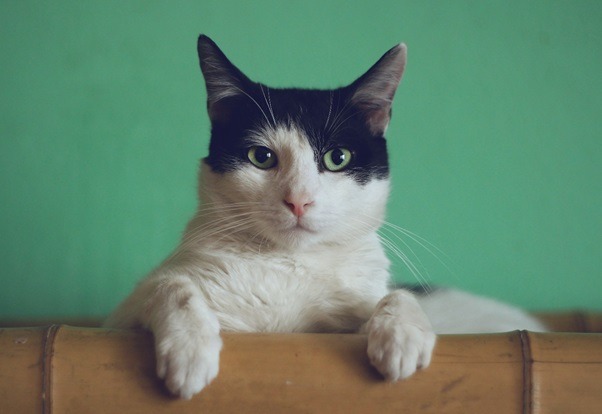The importance of routine checkups and vaccines cannot be overstated when it comes to protecting the health and wellbeing of our cherished feline friends. Pet owners may worry about the cost of veterinary treatment, though. One possible way to lessen these financial obligations is through pet insurance.
In this blog post, we will examine the services commonly covered by insurance coverage as we delve into the subject of cat veterinarian checkups and immunizations. Let’s explore the world of feline healthcare and insurance to gain a better understanding of the advantages and possibilities for coverage.
Pet Insurance Overview and Coverage
Pet insurance was created to ease the financial burden of veterinary care on pet owners. Just like human health insurance, pet insurance pays for preventative treatment like checkups and vaccinations. It also takes care of expensive procedures like surgery and emergency care. But do know that the scope of coverage may vary widely between providers and plans, as not all cat insurance policies are created equal.
The following are two major coverage offered by pet insurance:
Routine Checkup Coverage: As part of preventative care features, many cat insurance plans include coverage for routine checkups. However, according to the particular plan, the scope of coverage may differ. A standard benefit of some insurance plans could be annual wellness examinations, while other plans may provide additional coverage for diagnostics, immunizations, and even dental cleanings. Reviewing the insurance policy’s terms and conditions is essential to understand what is covered and if there are potential limitations or exclusions.
Vaccination coverage: Much like regular checkups, immunizations are frequently covered by cat insurance plans. To find out whether specific vaccinations are covered and if there are any restrictions on frequency or age requirements, it is crucial to carefully read the policy’s fine print. Do prepare ahead of time and make sure your feline companion receives timely immunizations because certain plans may have waiting periods before coverage for vaccinations becomes effective.
In addition to routine checkup coverage and vaccinations, some insurance plans may offer additional coverage for these:
- Additional Vaccinations: Some pet insurance plans offer coverage for optional or non-core vaccinations. These may include vaccinations for bordetella, feline calicivirus, and feline herpesvirus, among others. To see which extra immunizations are covered under your insurance policy, read the terms and conditions as coverage can vary.
- Preventive Medications: Certain preventive medications, such as flea and tick treatments and heartworm preventives, may be covered by pet insurance. These medications are crucial in safeguarding your cat’s health and preventing infestations or infections.
- Diagnostic Tests: Vets often ask for your cat’s diagnostic tests, such as blood work, urinalysis, and fecal examinations to assess their health and detect any underlying conditions. Some pet insurance policies might pay for these tests, especially if your veterinarian determines that they are medically essential.
Factors to Consider
Cat insurance can be a useful tool in reducing veterinary costs. However, you need to check a few things when evaluating coverage:
- Policy Specifics: Read and review all the terms, conditions, and exclusions of the insurance policy. See if there’re any breed-specific restrictions that may affect coverage, waiting periods, and other details.
- Pre-existing Conditions: The majority of pet insurance plans do not cover pre-existing conditions. So, try to sign your cat up for a plan at the earliest to ensure best coverage.
- Claims Process: Understand the claims process of the insurance provider. Determine whether they offer a simple and efficient online claims submission system. Look for policies that provide quick reimbursements and direct payments to the veterinary clinic to ease the financial burden at the time of treatment.
- Premiums and Deductibles: Examine the price of the premiums and deductibles and compare them with any potential benefits that the insurance policy may offer. To determine the worth of the coverage, take into account the specific needs, age, and potential hazards of your cat.
- Additional Coverage: Optional add-ons or riders that may improve coverage for particular services, including dental care or alternative therapies, are offered by some insurance companies. If any of these solutions fit your cat’s medical requirements, consider them.
- Customer Reviews and Reputation: Research the insurance company’s reputation and read customer reviews. Look for feedback on the company’s claims handling, customer service, and overall satisfaction. A reputable insurer with positive customer reviews can provide greater confidence in their ability to deliver reliable coverage and excellent support.
Vaccinations and checkups with a cat veterinarian are essential for preserving our feline friends’ health and wellbeing. The cost of these crucial preventative care procedures can be lessened with the aid of pet insurance. That said, you need to make sure that regular checkups, vaccines, and other preventative procedures are covered in your insurance policy. You can do it by reviewing and choosing an appropriate insurance coverage.
To make a well-informed choice that fits your needs, your cat’s healthcare needs, and your budget, keep in mind to review different insurance providers, compare plans, and fully understand the policy terms.
